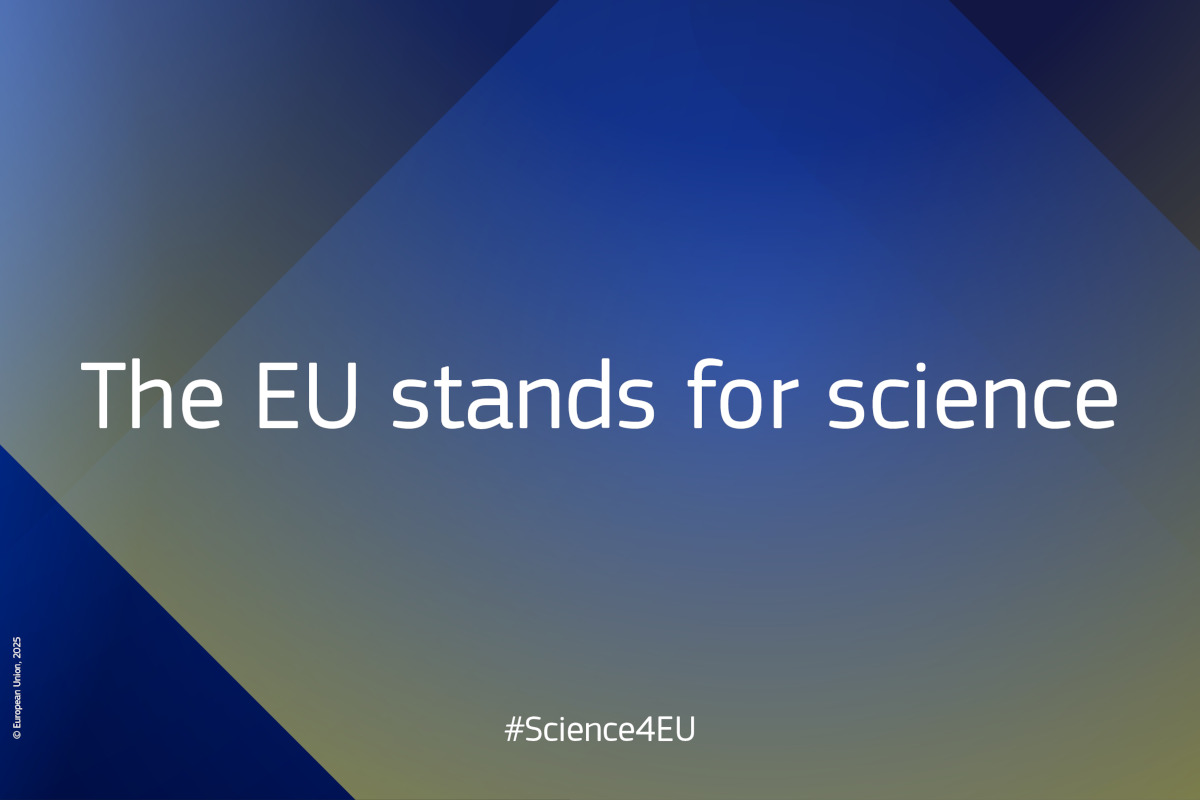Czech and Estonian researchers are joining forces to build a cross-border cybersecurity hub that will strengthen Europe’s digital defences in the face of growing cyber threats.
Special series

Science4EU
The Science4EU campaign shows how the EU stands for science. It shines a spotlight on the scientists, researchers, and innovators working with EU support to improve our lives and shape a better future for everyone.
Do you also stand for science?
Podcast
Media AV Portal Audio
More stories

Farmers and foresters across Europe are sharing sustainable bio-based practices and technologies, showing how local knowledge and European collaboration can help drive the transition to a greener future.
Most popular
-
1By Anthony King
-
2By Jessica Berthereau
-
3By Sofia Sanchez Manzanaro
-
4By Michaela Nesvarova
-
5
Top videos
From medieval stronghold to cyber fortress: shielding Europe’s digital future
8 August 2025
Why dolphins’ arteries don’t age – and what that means for us
6 August 2025
Past articles
Researchers are working flat out to convert a discovery hailed as cancer's ‘Achilles' heel’ into a treatment that they hope can be tested on humans in two years.
Our brains can adapt to losing sight or hearing, and the change is much more profound in younger people, brain scans are revealing.
Life could exist on Mars, tests on microbes have revealed, but finding it will be no easy task.
Your smartphone could become part of a city-wide safety network that can track down stolen goods and warn you if you’re about to enter a crime hotspot.
Our brains can adapt to losing sight or hearing, and the change is much more profound in younger people, brain scans are revealing.
Loud neighbours, traffic, and even trains - these are the noises of the modern urban neighbourhood. To help nullify this racket, urban planners may soon use 3D audio maps to design streets that absorb noise.
Researchers are working flat out to convert a discovery hailed as cancer's ‘Achilles' heel’ into a treatment that they hope can be tested on humans in two years.
The EU has announced that it will release EUR 10 million to fund research looking at the link between the mosquito-borne Zika virus, which is sweeping South America, and severe brain malformations seen in newborn babies, known as microcephaly.
Sending astronauts to Mars poses several large challenges, among them a long journey filled with life-threatening radiation from cosmic ray exposure and solar flares. Not to mention the fact that we haven’t yet worked out how to get them back again.
Europe needs a more dynamic economy and fast-growing innovative companies such as Google, Apple, Facebook and Amazon (GAFA) if it is to close the productivity gap with the US, according to a report produced by the European Commission which examines how the EU can improve its innovation performance.
Dr Susana Sargento, co-founder of Portuguese company Veniam, which turns city vehicles into wifi hotspots, has won the EUR 100 000 first prize in the EU Prize for Women Innovators 2016, which was awarded at a ceremony in Brussels, Belgium, on 10 March.
A nutritional drink has been shown to reduce brain shrinkage, conserve memory and maintain the ability to think and perform everyday tasks in people with early stage Alzheimer’s, indicating that it could slow the advancement of the disease.
A surveying device that spotted a group of children playing just 50 metres from a landmine is part of a new suite of tools that could help improve and speed up the mine-clearing process.
Dozens of spacecraft have visited Mars over the years, generating untold amounts of data and expertise. Now scientists are bringing all of this together, with a hope of painting a new picture of the red planet.
Natural resources are being used instead of pipes, pumps and ditches to help Europe deal sustainably with floods and rising temperatures.
Legalising people’s migration status makes them more rather than less likely to return to their country of origin, researchers say, highlighting just one of the ways that science can contribute to the migration debate and guide policymakers in their long-term thinking.
Legalising people’s migration status makes them more rather than less likely to return to their country of origin, researchers say, highlighting just one of the ways that science can contribute to the migration debate and guide policymakers in their long-term thinking.
There could have been life under the surface of Mars, according to Prof. Jan Woerner, Director General of the European Space Agency (ESA), which in March is launching its ExoMars mission to find out.
As the European Space Agency’s ExoMars mission begins its six-month journey to the planet, we talk to its director-general Professor Jan Woerner about drilling into the Martian surface and pose the crucial question: is there life on Mars? We also find out how scientists are recycling historic data to create a virtual reality simulation of the planet’s terrain, and explore some of the obstacles to a crewed Martian mission.
Think industrial robot and you imagine a production line of machines each dedicated to a specific task, but low-cost machines that can be taught by simply guiding their arms mean that automation is coming to the workshops and ateliers of Europe’s small-scale innovators.


























